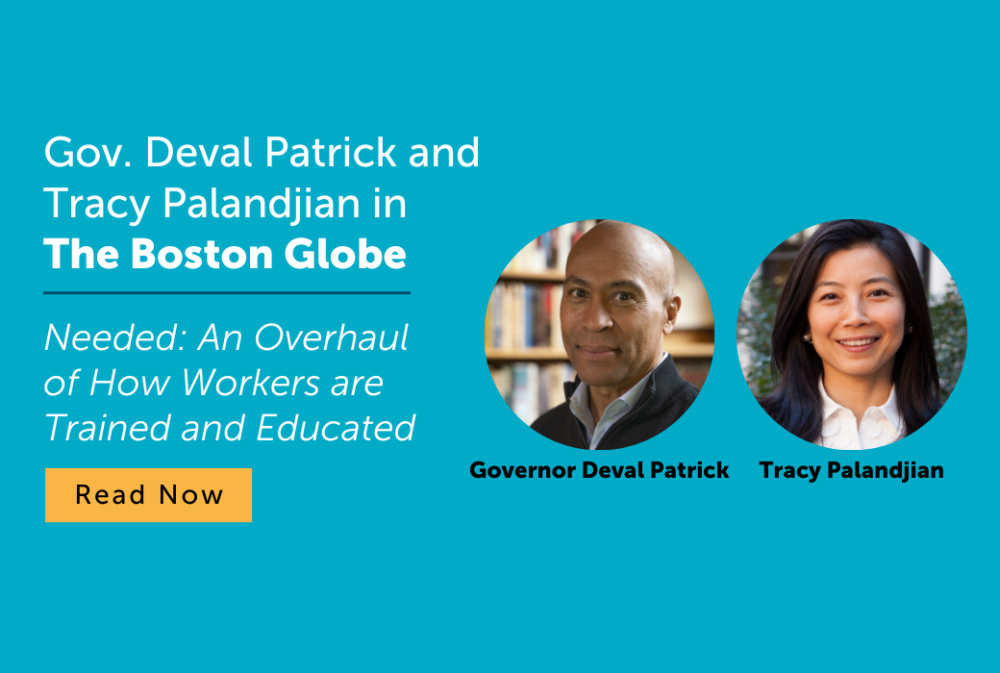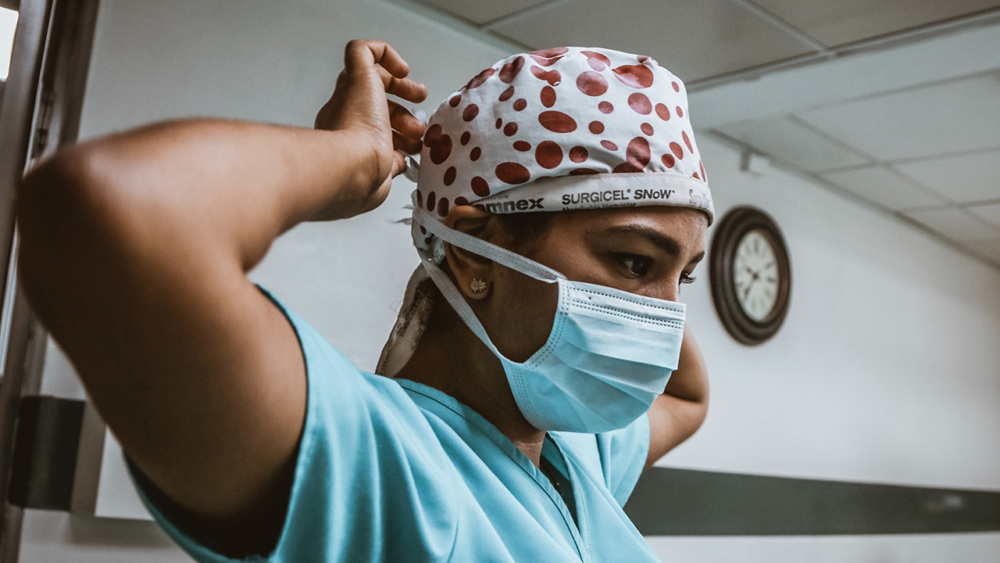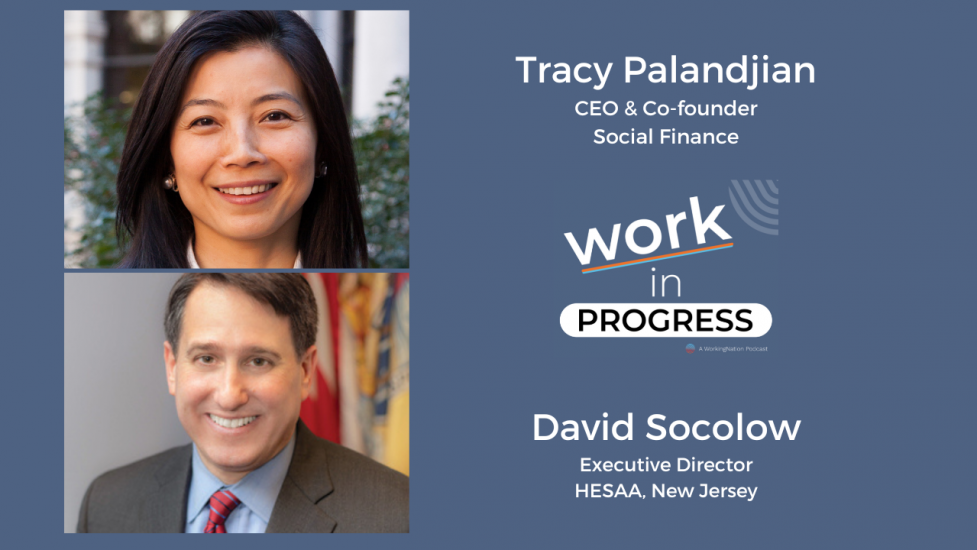

Workforce & Education Investments, Workforce & Economic Mobility, Pay It Forward Funds
This article originally appeared in The Boston Globe.
Many efforts to restore our fraying democracy focus on how it functions—how to make it easier and more reliable to register to vote, cast a ballot, and have that ballot count. These reforms are vital and urgent. But strengthening American democracy must also be about making it meaningful. Democracy cannot be just a political theory or an empty once-every-election-cycle exercise. It has to deliver relevant results for all citizens, results that are foundational to the American aspirations of opportunity, security, and justice.
But for most Americans, these aspirations are distant and becoming more elusive. Why? Even at a time of historically low unemployment, millions are underemployed or working multiple low-paying jobs just to make ends meet. Many more are saddled with crushing student debt. And while employers cannot find the skilled workers they need for the millions of good jobs available, an estimated 2.6 million working-age adults have given up looking for work altogether since the COVID-19 pandemic. Society can debate the policy choices that got us here, but economic mobility has been declining for decades. Even before the pandemic, a child had only a 50 percent chance of out-earning its parents, compared to 90 percent in the 1940s.
We have a chance to turn that around. Unprecedented federal investments in microchips and other advanced manufacturing, as well as clean energy, broadband expansion, and construction of housing, roads, bridges, and rails—stimulating much more in private investment—offer a historic moment to shape a new future for all Americans. In the Inflation Reduction Act alone, more than 9 million good jobs in climate, energy, and environmental investments will be created over the next decade.
Job training may sound dull, but getting it right is a key part of creating opportunity for people and places that have been left behind—and ultimately strengthening our economy and democracy.
Preparing people effectively for these jobs is a challenge government and business must meet together, one that will require an overhaul of the channels used to educate and train workers. Job training may sound dull, but getting it right is a key part of creating opportunity for people and places that have been left behind—and ultimately strengthening our economy and democracy.
Unfortunately, our current workforce development system is not up to the challenge. Well-intentioned state and federal agencies spend billions on programs without knowing what results they are actually producing. Schools and training programs collect tuition regardless of the real-world employment outcomes of their graduates.
Many students drop out, not because they lack a work ethic but because they lack child care, transportation, or are otherwise unable to overcome the practical barriers of poverty. In fact, only about 40 percent of community college students who enroll to earn a two-year associate’s degree or a certificate graduate within six years. Surely, fixing the education and workforce training system would help more people get good jobs, increase productivity, boost American competitiveness, and support our national security agenda, but it would also help renew faith in the American idea that hard work leads to a better life.
In search of a better model, new programs across the country are being piloted to align partners throughout the system—training programs, government agencies, employers, and students—to drive real accountability with a laser focus on student success. These partnerships are designed to ensure that students graduate from programs with relevant skills and land jobs with better pay, and that employers secure the talent they need to run their businesses.
New Jersey’s Pay It Forward Program is a good example. Created in partnership with Governor Phil Murphy and the state’s CEO Council, the program supports learners to pursue training in nursing, cybersecurity, or clean energy with minimal financial risk. Say you are getting certified in heating, ventilation, and air conditioning at Camden County College. Students enroll with no upfront costs and access an outcomes-based loan—a last-dollar funding solution. They receive a living stipend and career support during the program, and then pay back only the cost of tuition, with zero interest and no fees, if and when they earn above an income threshold based on family size—for example, $57,000 for a family of four.
Another innovative program is the $100 million Google Career Certificates Fund, designed to upskill 20,000 people from underserved communities to realize $1 billion in wage gains. Learners enroll in holistic workforce development programs such as Merit America; acquire an in-demand certificate in a field such as data analytics and IT support; and receive soft skills coaching and other supportive services to meet daily life challenges. As with the New Jersey program, students repay the outcomes-based loan, with no interest, only if they secure a job that pays above a salary floor. And unlike traditional arrangements, training providers are compensated based on student success.
These types of cross-sector partnerships serve as new models to make public spending and private investments accountable for results: equipping workers with employable skills that lead to careers with upward mobility.
Certainly, improving workforce training alone will not cure all of democracy’s ailments. But it would help rebuild confidence in our institutions.
Certainly, improving workforce training alone will not cure all of democracy’s ailments. But it would help rebuild confidence in our institutions. Research shows that meaningful work increases civic participation and happiness. Labor force participation is correlated with higher self-esteem, lower rates of depression, and better health outcomes. People with good jobs are also more likely to trust in the good will of others and engage in their communities—the building blocks of a healthy democracy.
We are entering a moment of extraordinary federal investments in our nation’s future. Reimagining how we educate, train, and reskill the US workforce will help maximize the return on these investments, grow the economy, and enable our democracy to deliver material results where it counts—in people’s lives.
Related Insight

Social Finance in The New York Times: Job Training That’s Free Until You’re Hired Is a Blueprint for Biden
This feature in the New York Times covers Social Finance’s Career Impact Bond with American Diesel Training Centers. The article highlights two program graduates, Bill and Jordan, who completed the program, found jobs, and are…

New Job Training Model Helps Workers and Businesses Reach New Economic Heights
The New Jersey Pay It Forward Program uses a sustainable funding strategy that amplifies the impact of every public dollar and brings employers to the table to achieve real, measurable results for workers—that is, good…

WorkingNation Podcast: New Jersey Bets on Zero-Interest, No-Fee Workforce Training Loans
Ramona Schindelheim, editor-in-chief of WorkingNation, sits down with David Socolow and Tracy Palandjian to discuss the New Jersey Pay It Forward Program.